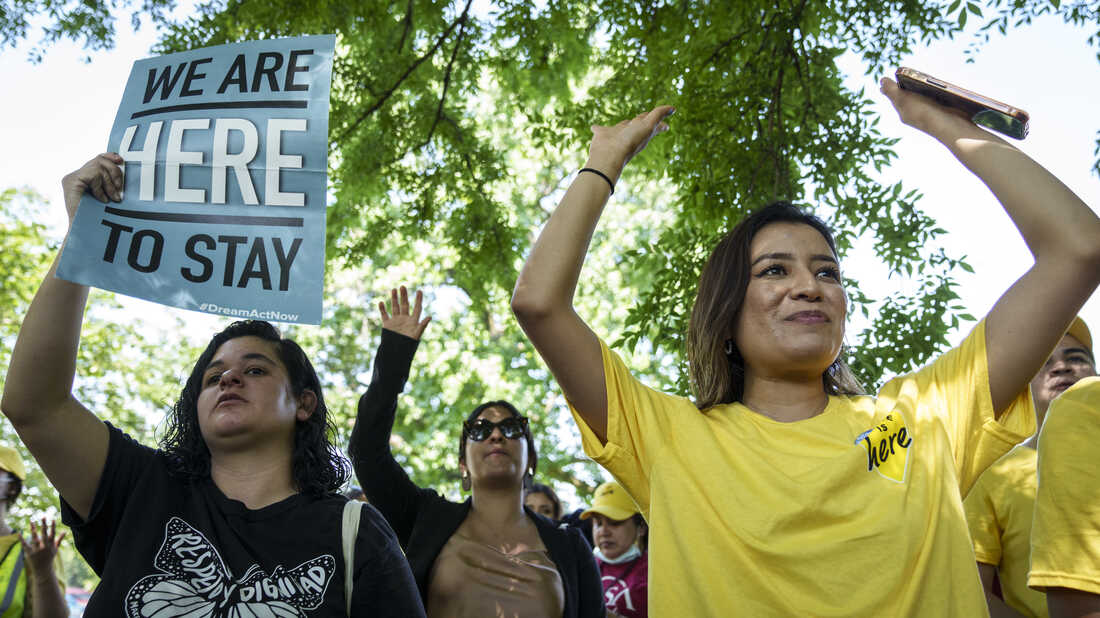
Immigration advocates rally to urge Congress to pass permanent protections for DACA recipients and create a pathway to citizenship, near the U.S. Capitol, June 15, 2022 in Washington, DC. Drew Angerer/Getty Images hide caption

Immigration advocates rally to urge Congress to pass permanent protections for DACA recipients and create a pathway to citizenship, near the U.S. Capitol, June 15, 2022 in Washington, DC.
Drew Angerer/Getty ImagesIt's been ten years since the Obama administration announced Deferred Action for Childhood Arrivals, or DACA. The policy provided protection from deportation for hundreds of thousands of undocumented immigrants brought to the US as children.
President Obama called it a "temporary stopgap measure," at the time, but Congress hasn't passed any legislation in the intervening years to create permanent protection for the people covered by DACA.
Last year, a federal judge in Texas ruled the program is illegal, and the program is essentially frozen in place while the Biden administration appeals. Current DACA recipients can reapply, but the administration can't grant any new applications. NPR's Joel Rose reports that that has left roughly 80,000 DACA applications indefinitely on hold.
Two early DACA recipients and advocates for undocumented immigrants, Diana Pliego and Esder Chong, discuss how they view the program, on its tenth anniversary.
Help NPR improve podcasts by completing a short, anonymous survey at npr.org/podcastsurvey.
Email us at
This episode was produced by Connor Donevan and Alejandra Marquez Janse. It was edited by Bridget Kelley, Patrick Jarenwattananon and Ammad Omar. Our executive producer is Sami Yenigun.

 Live Radio
Live Radio